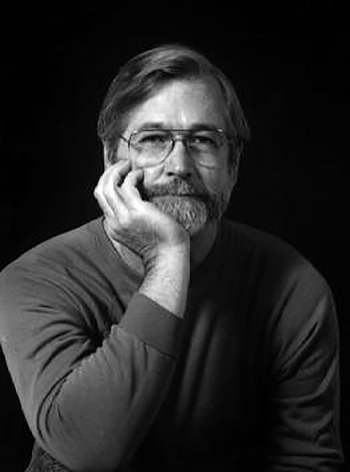SDSU Alumnus Establishes First Music Composition Scholarship

July 5, 2017
Frank McCarty, a graduate of SDSU’s Music Composition Program, has generously established the first Music Composition Scholarship. McCarty’s roots in the SDSU Music Department have significantly influenced his rich and dynamic career. Originally a Music Education major and player of multiple woodwind instruments and percussion, McCarty had high hopes to emulate Al Krasic, his band director at Escondido High School. “Krasic taught me music theory and helped me begin composing,” he said.
McCarty became an active musician in the club scene as well a member of Phi Mu Alpha. He served as Choir Director at College Lutheran Church and later at La Jolla Methodist, and was a member of the percussion section in the San Diego Symphony. With the encouragement of then-graduate student William McCants, McCarty approached Department Chair J. Dayton Smith and requested to become a composition major. “With Smith’s approval, I became the first [composition major] and began studying off campus with Howard Brubeck. In 1961, David Ward-Steinman was hired to establish SDSU’s composition program. He was my primary composition teacher and helped me develop a solid technique and an expressive, consistent style.” McCarty regarded Ward-Steinman as a mentor who helped guide his path and exposed him to a world of contemporary composers and pieces.
A multitude of SDSU professors had profound influences on McCarty’s musical life. “Paul V. Anderson was our cello professor and principal of the San Diego Symphony. He also conducted the SDSU orchestra and taught a course in music literature that I admired. He also brought in the Fine Arts Quartet to give a performance of Bartok’s Fourth String Quartet. It amounted to one of the most profound musical experiences I had had up to that time.” Frank said.
McCarty also fondly remembers then-oboe professor, Carlos Mullenix, “who we all adored because of his great stories.” Frank McCarty’s Masters Thesis at USC was a woodwind quintet dedicated to Mullenix, which won a BMI award. He also cites Christine Springston, piano professor, whose requirement that students memorize all the themes of the Beethoven symphonies enabled McCarty “to have a career-changing moment several years later.”
McCarty called piano professor Benny B. Kemp’s course “by far the best music theory class I took while at State. The idea of thinking in terms of musical lines also exerted powerful improvements in my own compositions.” Kemp’s teachings in Modal counterpoint stayed with McCarty through his own teaching of the subject, which eventually led to authoring a book entitled “Pure Counterpoint” after retirement.
Frank McCarty’s compositions are diverse in both style and application, including theatre productions, children’s opera, television, electro-acoustic composition, and much more. Frank McCarty’s generous gifts to the school will enable future composition students to continue down the successful path he helped to forge.
The content within this article has been edited by Lizbeth Persons.
More PSFA Stories